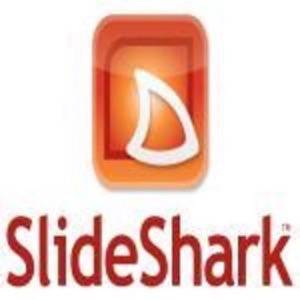
Google unveiled the Knowledge Graph. SlideShark makes giving presentations via your iPad easy peasy. Learn more about these stories and many more in the ReadWriteWeb Weekly Wrap-up.
After the jump you’ll find more of this week’s top news stories on some of the key topics that are shaping the Web –
,
and
– plus highlights from some of our six channels. Read on for more.

Google Goes Back to What It Does Well: Finding Things
Google released the Knowledge Graph this week and Jon Mitchell explains the ins and outs:
In the new Google, with the Knowledge Graph online, a new box will come up. You’ll still get the Google results you’re used to, including the box scores for the team Google thinks you’re looking for, but on the right side, a box called “See results about” will show brief descriptions for the Los Angeles Kings, the Sacramento Kings, and the TV series, Kings. If you need to clarify, click the one you’re looking for, and Google will refine your search query for you.
Learn more about how this will affect your search experience by reading Jon Mitchell’s
Google Goes Back to What It Does Well: Finding Things
.

Giving iPad PowerPoint Presentations Just Got a Lot Better
If you’ve ever tried to give a presentation with your iPad, you know it’s virtually impossible if you want to use presenter mode. That all changed with the recent release of SlideShark. Get a good look at the app by reading David Strom’s review of the presentation app, SlideShark.
More Top Stories

[Infographic] Taking HTML5 to the Next Level for Mobile
By 2013, there will be more than one billion HTML5-capable browsers in use throughout the world. Applications for those HTML5 browsers will be created by two million HTML Web developers, according to research from IDC. There is no question that HTML5 is going to be a major factor in mobile development during the next five to 10 years. The rise of HTML5 does not mean the death of native applications, but as the standard progresses, many developers will begin to incorporate more HTML5 into their apps than native code. More

Study: Facebook Timeline Improves Fan Engagement For Brands
Facebook posts by brands live longer on Timeline than they did prior to the social network’s massive overhaul, according to a study released Monday.
While the analysis by London-based social media analytics firm Sotrender is limited in scope, covering just 130 brands headquartered in the U.K. and 5,000 posts, it is the first such empirical review since Timeline became mandatory for all Facebook brand pages at the end of March. More

Computer Programming for All: A New Standard of Literacy
Everyone ought to be able to read and write; few people within the global mainstream would argue with that statement. But should everyone be able to program computers? The question is becoming critically important as digital technology plays an ever more central role in daily life. The movement to make code literacy a basic tenet of education is gaining momentum, and its success or failure will have a huge impact on our society. More

What Is the Point of: #Hashtags?
Whenever a new Web trend comes along, there are people who ask, “What is the point of this?” If millions of people are using something, there has to be a reason. In our “What Is the Point of…” series, we’ll explain it to you.
This week, we’re asking, What is the point of #hashtags? More

Staying Off Facebook Won’t Protect Your Privacy
Stay away from social networks and people won’t know who you’re hanging out with or what you’re doing, right? Wrong. When it comes to social networking, a recent study suggests, you can run but you can’t hide. More

A Discreet Guide to Using Mobile Devices in the Loo
Last year, British researchers swabbed 390 cell phones and analyzed what they picked up. Know what they found? One in six phones has poop on it. Four out of five are contaminated by some kind of bacteria. Sure, we all like to make our own calls while answering Mother Nature’s, but that’s just gross. Here’s a surefire way to avoid a crappy user experience on your smartphone or other mobile device. More

How and Why Your Startup Should Go Virtual
Working virtually sounds like heaven to many startups. After all, not having a central office staffed with employees saves money on rent, utilities, parking, etc., freeing you to invest in research, development or marketing.
On the other hand, operating virtually is no panacea. Before you make the virtual leap, you need to figure out exactly what working virtually means to your business. More
ReadWriteWeb Channels
Follow ReadWriteEnterprise on Twitter.
- Easel.ly Makes Infographics Easy… But Should It?
- How to Share Your Business Photos Online – Discreetly
- Top 10 Windows 8 Features #6: Secure Boot
Follow ReadWriteMobile on Twitter.
- Mobile Marketing Set to Create Havoc and Opportunities
- How Facebook’s Mobile Strategy Might Create Future Revenue Streams
- Disassembling Android: Chinks in Google’s Mobile Armor
Follow ReadWriteCloud on Twitter and join the ReadWriteCloud LinkedIn Group.
- Google Prices its Cloud SQL Offering, Solidifies Cloud Database Market
- S3 Storage for WordPress Blogs
- The Hottest IPO You’ve Never Heard Of
- Stop Flying Blind: Use Big Data to Benchmark Your Startup
- 9 Ways to Convince Your Parents to Support Your Startup – Not Just Financially
- Startup Swingers: Swapping Founders to Generate Fresh Ideas
ReadWriteWeb Community
You can find ReadWriteWeb in many places on the web, a few of which are below.
- ReadWriteWeb on Facebook
- ReadWriteWeb on Twitter
- ReadWriteWeb on Google+
- ReadWriteWeb on LinkedIn
- ReadWriteWeb on Pinterest
- ReadWriteWeb on Storify
Subscribe to the ReadWriteWeb Weekly Wrap-up
Want to have this wrap up delivered to you automagically? You can subscribe to the Weekly Wrap-up by RSS or by email.

















